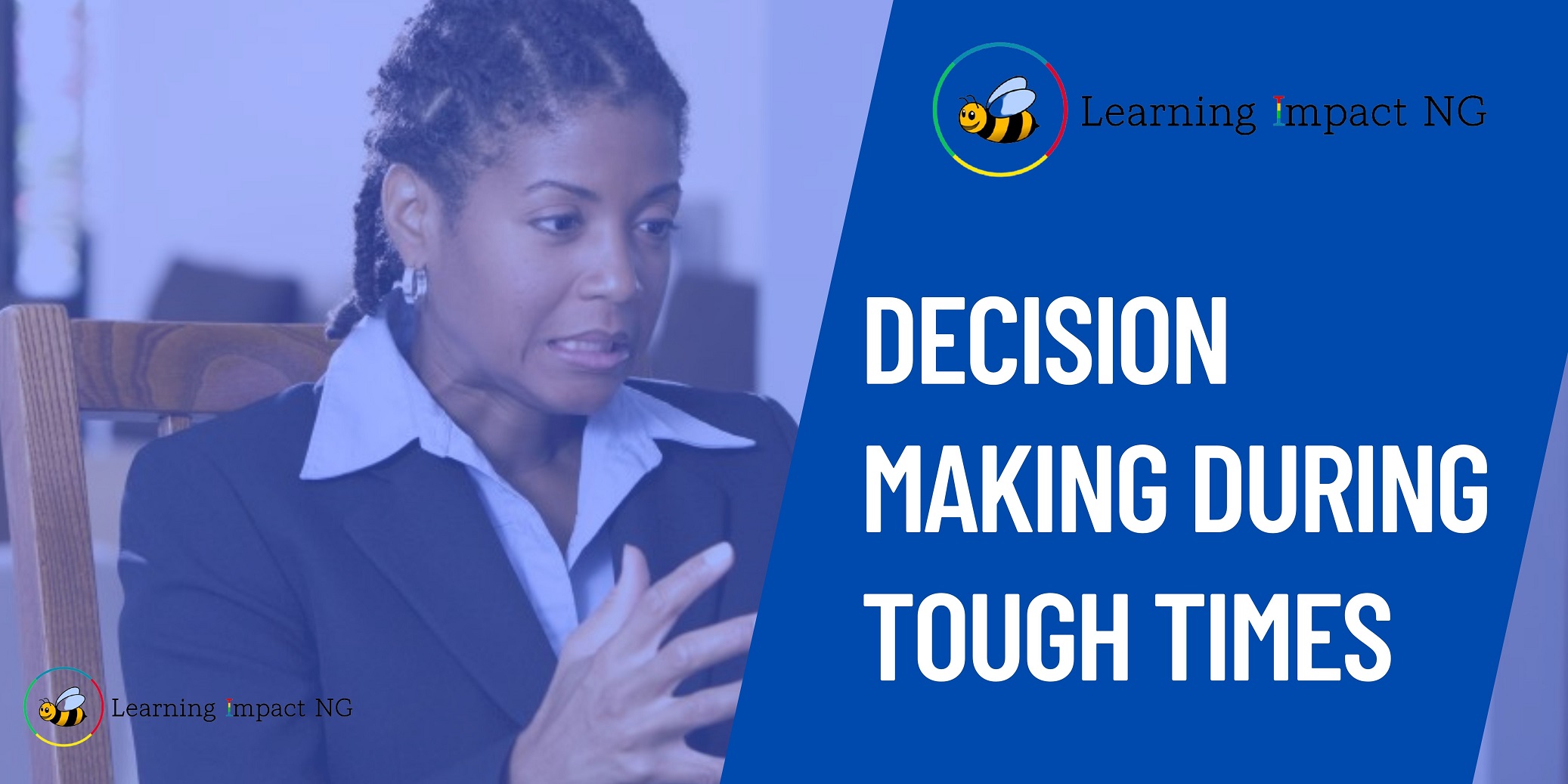The COVID-19 lockdown has had an immeasurable impact on our lives, work, businesses, and communities. It made what seemed like simple decisions more difficult for us to make - when to go out? what to do when we are outside? How much money to withdraw? How much food to buy? (for the very few who actually have resources to spend).
On the other side of the spectrum of the COVID-19 lockdown are many business owners (schools, restaurants, consultants, travel agents, contractors, hoteliers, property developers, etc.) whose businesses have been literally turned upside down since the pandemic and the lockdowns began. For this non-exhaustive group of people, decision-making is critical.
Interestingly, my family income is tied to two businesses that have been greatly impacted by the lockdown - in education and strategic consulting, so my wife and I have come face to face with difficult decisions including a decision to close one of our offices even before the Government lockdown was announced. So, I will like to share with you a few thoughts on decision making and how we can make better decisions for our families, businesses, and communities during the lock-down that even our leaders in Government may want to learn from:
- 1. Distinguish between decision-making myths and reality: When it comes to decisions making there are many myths that people have. For example;
a. That only the CEO (ogas at the top) takes decisions.
Reality check: decisions happen at all levels of your organization so try to tap into and carry more people along in your decision-making process.
b. That decisions are largely intellectual exercises.
Reality check: if COVID -19 has taught us something which we should have known a long time ago it is that decisions are complex social, emotional, and political exercises in addition to being intelligent.
c. Leaders analyze and then decide.
Reality check: most decisions are taken before the analysis and then the analysis is done to support the decisions, which often lands us in trouble!
Understanding these myths will help you change your perspectives about what it takes to make a great decision which we will explore more as we proceed. - 2. Overcome the Cognitive Biases that affect our Decision Making: There are a number of biases that affect our decision making and we have to be careful to ensure that these biases do not lead to sub-optimal decisions. Biases like:
Over-confidence Bias, that is often based on our extensive experience and expertise that we rely on sometimes to our peril.
The sunk-cost Bias, where we tend to escalate our commitment to a particular course of action in which we have made a significant prior investment in time and resources (we have put in so much that we are afraid that giving up is not an option).
Availability Bias, where we place too much emphasis on the information or data that is easily available to make decisions without exploring other alternative data.
- 3. Use Design Thinking Tools: The best decisions are made by groups of people who use the design thinking process to ensure that the myths, cognitive biases, and “group think” do not lead to sub-optimal decisions. My favourite approach comes from IDEO - you Clarify, Ideate, Develop and Implement. I have a toolkit of over 30 tools across these four stages that I have found quite useful.
- 4. Remember the Big D - DATA: Use data and use it wisely, do not suffer from analysis-paralysis, but ensure that your decisions are backed up by real data. Carry out experiments to test the data and be careful about the difference between correlation (the fact that some things are related to each other) and causation (the fact that something actually causes another to happen).
- 5. Learn from your Outcomes: Think of effective decision-making as a process and NOT an event. This means that you are constantly learning and refining your decisions rather than accepting the consequences of your decisions as a fait accompli. Learn to fail forward even when your decision leads to undesirable outcomes.
So, armed with these thoughts on decision making, I am confident that you will make better decisions for yourself, your family, organization, and community especially in these challenging but interesting times. If you get it right, some of these decisions may create the turn-around and paradigm shifts that will transform your lives forever.



Leave a comment